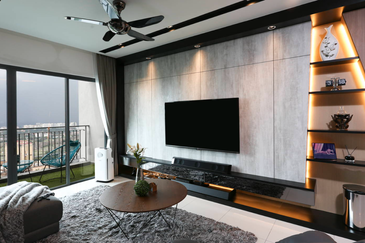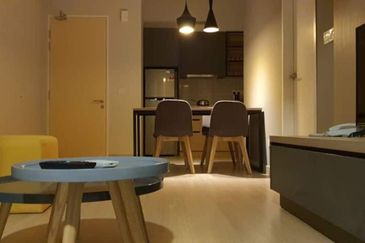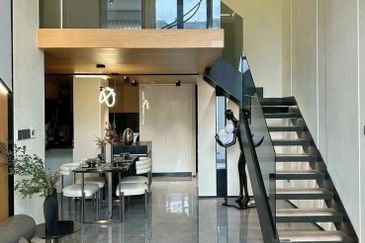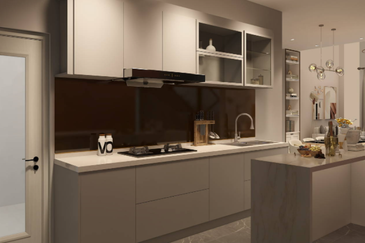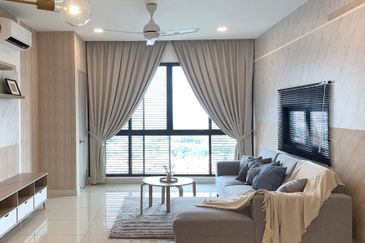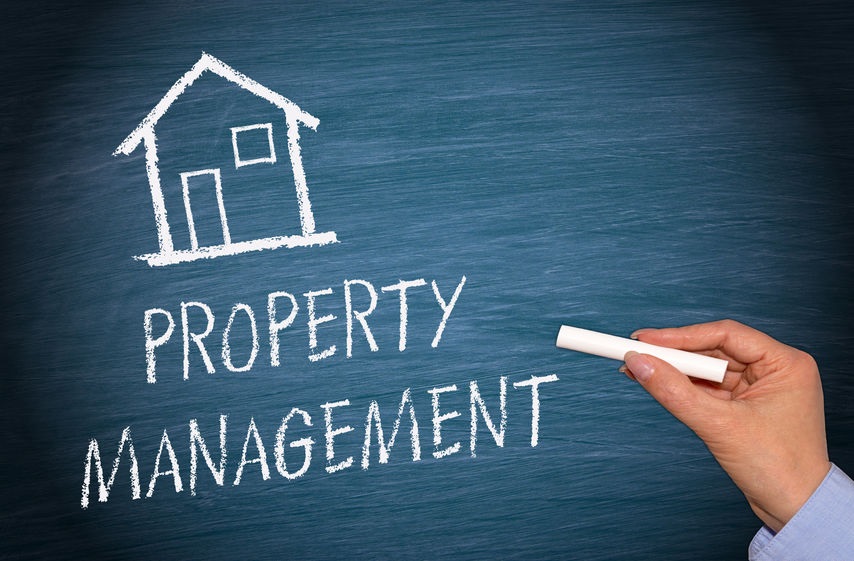
- Upon inspection though, two of our readers found, to their dismay, much to be desired in their newly handed-over properties.
KUALA LUMPUR (Dec 15): Getting your keys to your house is worth every celebration, but after the champagne is cleared comes the work of checking the asset.
If yours is a strata property, be it a flat, condo, apartment or even gated-and-guarded landed houses, you are the co-owner of an array of shared areas and facilities too, and you’d want to make sure they are defect-free as well.
Upon inspection though, two of our readers found, to their dismay, much to be desired in their newly handed-over properties. Knowing these common property defects are not so uncommon, we share here the readers’ problems (edited for clarity) and the answers (edited for clarity) from two experts: Chur Associates founder and managing partner Chris Tan; and Pretam Singh, Nor & Co partner and lawyer Datuk Pretam Singh Darshan Singh.
Lack of tools and skill to check
Q: I just got keys to my new condo. For my own unit, of course I can get a house inspector to check, which I did, and there were 150+ defects in a 1,200 sq ft unit! Through a normal visual inspection I could already see multiple defects like chipped, cracked and holey tiles with unfilled gaps, uneven paint surface, etc.
You can imagine how poor the quality and workmanship is. Even my main door lock doesn't work!
Anyway, now my concern is for the common property. I cannot be noting down all the defects as the area is so large! I also don't have the tools or skills to check.
Shouldn't the onus be on the developer to check the property themselves before they hand it over? Or does the housing ministry look after these developments?
What are my options?
Multiple lift breakdowns in new property
Q: We have gotten vacant possession, it is still the first year, but there have been multiple breakdowns of our lifts (three times already).
The management does not seem to be cooperative but we are concerned because the defective lift is a major M&E (mechanical and engineering) issue. Even if you have built according to your tenders, frequent breakdowns may mean either non-compliance or a flaw in the design.
However, we still do not have a committee. What can we, as the owners, do in the meantime? Do we have to sit quietly and take whatever the management or the developer dishes out at us?
Defect liability period covers common property
Tan: The purchase of residential property is regulated under the Housing Development Act 1966 (HDA). Clause 30 of the prescribed Schedule H in the sale and purchase agreement (SPA) entitles the purchaser to claim against the developer for the defect of common property. The Defect Liability Period, as well as the relevant retention sum prescribed by the law is to also cover the defects in the common property.
You can report the defects you have detected directly to the developer if it is under the Developer Management Period prior to the establishment of the Joint Management Body (JMB) or the Management Corporation (MC). In the event the JMB or MC is formed, there will be a proper handover of the common property under the law to the JMB or MC, and these defects can be brought to the attention of the developer to make good.
Procedure for claims set out statutorily
Pretam: For any defects and other faults in the same parcel, building or common property that become apparent within 24 months, the procedure of making claims from the developer is statutorily set out under Clause 30 of the prescribed Schedule H in the SPA, which is binding on the developer as well as the purchaser.
You have to first follow Clause 30 (2) which says that if the developer does not repair the defect within 30 days of your notice, you can get a quotation and then give notice to the developer again. If the developer still does not respond within 30 days, you can give this quotation to a contractor to come and complete the repair and make a claim from the developer.
Assuming you have not done so, and you want to make a civil claim against the developer, then you have to get a building inspector to come and identify the defects because it is your duty as the purchaser to prove the loss. You need a building inspector to come and show the defects and a quantity surveyor’s report to show how much it will cost to rectify the defects. After that, you can make a claim.
However, when it comes to common property, individual purchasers will not want to go through all the hassle because it is very costly, unless they get a group of purchasers together.
Lifts come with warranties
Pretam: On the issue of lifts, sometimes it could be more of a maintenance issue rather than a defect. The problem could arise from not maintaining it in a proper manner as per the maintenance manual. For example, if our car could not start, it might actually be a battery issue, so we couldn’t go and sue the manufacturer. As laymen, we are not able to identify whether it is a maintenance or defect issue.
Nevertheless, all lifts come with warranties. If there is a JMB, I am sure the JMB would have already got a copy of the warranty. If the JMB has not been formed, it has to be the Developer Management Period, so the residents should be writing to the developer because the latter would have already started collecting maintenance charges. Therefore it should also be maintaining the lifts as well.
If it is still breaking down, then the purchasers have to give notice that they will get an independent person following Clause 30 to get another contractor to repair and make a claim from the developer. Clause 30 is still applicable if there is no JMB yet – it is still within the DLP.
When it comes to lifts, we have the Department of Occupational Safety and Health under the Ministry of Human Resources. You will have to contact the department and they will come and inspect. All lifts will have the government certificate.
*Disclaimer: The answers are only proposed solutions by the experts based on the limited information given in the questions. EdgeProp does not give any warranty on accuracy, completeness, usefulness, fitness for any particular purpose or other assurances as to the opinions and views expressed in this column. EdgeProp disclaims all responsibility for any losses suffered directly or indirectly arising from reliance on such opinions and views.
TOP PICKS BY EDGEPROP

The Hipster @ Taman Desa
Taman Desa, Kuala Lumpur
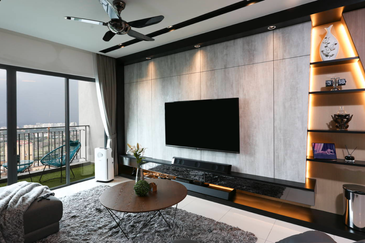
Subang Jaya City Centre (SJCC) : Teja
Subang Jaya, Selangor

Arte Solaris @ Mont Kiara
Mont Kiara, Kuala Lumpur

Arte Solaris @ Mont Kiara
Mont Kiara, Kuala Lumpur

Arte Solaris @ Mont Kiara
Mont Kiara, Kuala Lumpur

Arte Solaris @ Mont Kiara
Mont Kiara, Kuala Lumpur

Arte Solaris @ Mont Kiara
Mont Kiara, Kuala Lumpur



